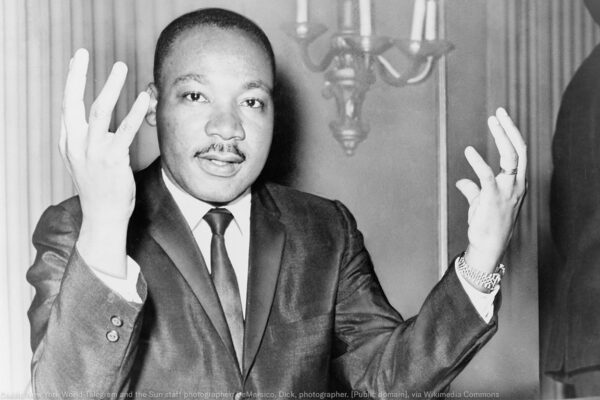This was originally published by Rolling Stone.
As FBI director J. Edgar Hoover became increasingly disturbed by the growing political power of the Civil Rights Movement — and paranoid about its possible connections to communists — he directed his agents to step up their surveillance of Martin Luther King, Jr.
Hoover’s obsession with King bordered on the fanatical. In his bid to destroy King, the now-disgraced patriarch of the modern FBI went so far as to send information about King’s private sex life to journalists. It didn’t work. Journalists refused to go along with the bureau’s smear campaign, and King went on to secure passage of the Civil Rights Act and win a Nobel Peace Prize.
But Hoover didn’t give up: He sent a now infamous letter to King, describing King’s private sexual activity and encouraging the reverend to kill himself in order to avoid the public embarrassment of the publication of the FBI’s surveillance records.
The FBI’s surveillance of black Americans isn’t just history. Last year, we learned the FBI has been spying on black activists, labeling them “Black Identity Extremists.” The feds also use powers obtained through national security laws like the Patriot Act to target people in the racially biased drug war.
More disturbing: The FBI that spied on King and today classifies Black civil rights activists as “extremists” is now partnering with Big Tech to amass unprecedented surveillance powers that history has taught us will be used to target communities of color, religious minorities, dissidents and immigrants.
In the 1960s, the FBI relied on rudimentary wiretapping systems and photos taken by informants. Now, it’s piloting Rekognition, Amazon’s facial recognition product that the company is aggressively marketing to police and ICE.
This marriage of Amazon’s face-surveillance technology to the FBI’s troves of Big Data about tens of millions of people threatens to supercharge the government’s ability to track and monitor all of us. This is the dystopian future sci-fi novelists warned us about. Imagine a world in which secretive government agencies can track millions of faces — both in real time and through historical video footage — enabling them to identify political protesters, whistleblowers and journalists’ confidential sources.
That nightmare scenario may already exist in skeletal form at the FBI. Since 2015, the bureau has operated a Facial Analysis, Comparison, and Evaluation Services Unit — a.k.a. FACE — that “provides investigative lead support to FBI field offices, operational divisions, and legal attachés” and “may offer face recognition support to federal partners.”
Photographs of half of American adults are likely in the “Interstate Photo System” accessible to the FBI for face recognition searches. And the FBI has also entered into agreements with more than a dozen states, enabling its agents to access driver’s license databases, massively expanding the number of people who are subject to the FBI’s face-recognition surveillance.
The full extent to which the FBI is using face recognition, or could use Amazon’s technology, to track political protesters, identify whistleblowers or engage in other invasive surveillance remains unknown. That’s why we at the ACLU are filing a Freedom of Information Act request demanding the Department of Justice disclose how federal law enforcement agencies, including the FBI, are using face-recognition technology, and what safeguards, if any, are in place to protect basic rights and liberties.
The FBI’s long-secret harassment of King offers us two lessons.
The first: Inappropriate government surveillance flourishes behind closed doors. It’s important we fight back against that secrecy and uncover information about what the FBI and other federal law enforcement agencies are doing with these high tech tools.
The second lesson is for companies like Amazon, who are arming the government with new surveillance powers despite warnings from lawmakers, academics, consumers, employees and shareholders. As a coalition of nearly 90 civil rights, racial justice and religious organizations recently warned Amazon, Google and Microsoft, the choices these companies make now will determine whether the next generation will have to fear being tracked by the government for attending a protest, going to their place of worship or simply living their lives.
For the future of our rights and freedoms, companies like Amazon must stop selling facial-recognition technology to the government, and the FBI must come clean about how it is partnering with Big Tech to implement face recognition across the country.

